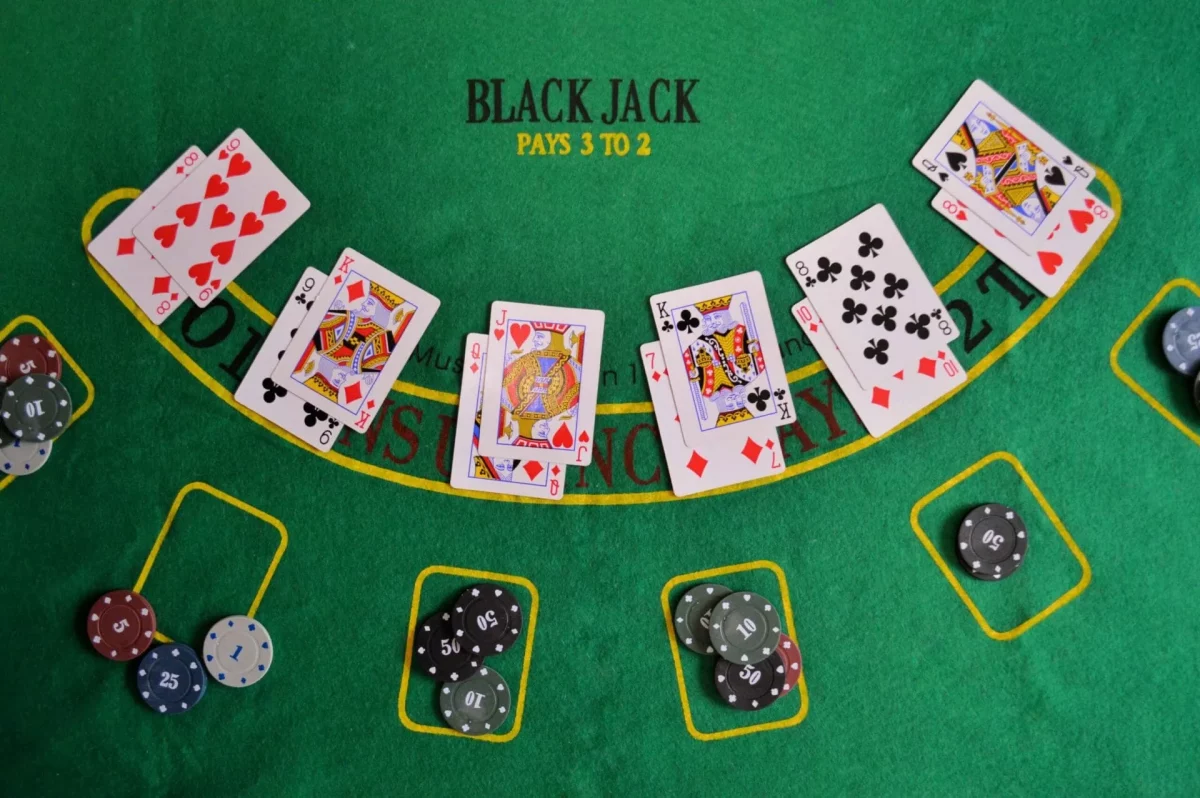Blackjack, also known as 21, is one of the most popular card games played in casinos worldwide. Its blend of luck, strategy, and simple rules make it appealing to both beginners and seasoned gamblers. This comprehensive guide will take you through the history, rules, and strategies of Blackjack, providing you with the knowledge to play effectively, whether you’re at a casino or playing online.
The History of Blackjack
What is Blackjack?
Blackjack, also referred to as 21, is a card game where players compete against the dealer rather than each other. The primary objective is to have a hand value as close to 21 as possible, without exceeding it. The game combines luck and skill, making it a favorite among casino-goers and online players alike. If you want to learn how to play blackjack online, you need to study the rules.
The Origins of Blackjack
The origins of Blackjack can be traced back to the 17th century in Spain, where a game called “Twenty-One” was popular. This game eventually spread across Europe, and by the 18th century, it had made its way to France, where it was known as “Vingt-et-Un.” The game evolved over time, and when it reached America, it became known as Blackjack. Make sure you know the black jack dealer rules before you start playing.
Evolution in Casinos
Blackjack gained significant popularity in American casinos during the 20th century. Casinos introduced various rules and side bets to attract more players. The development of strategies and card counting techniques added a new dimension to the game, making it even more appealing to gamblers. Today, Blackjack remains a staple in both land-based and online casinos.
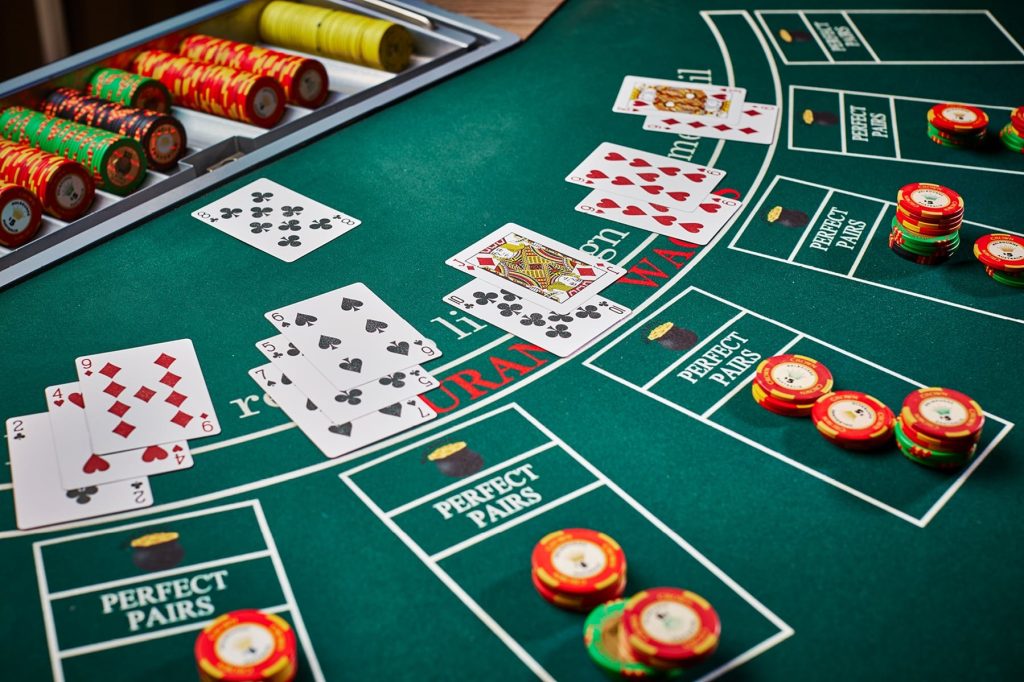
How to Play Blackjack
Basic Gameplay
Understanding how to play Blackjack in a casino relatively straightforward. The game is played with one or more decks of standard playing cards. Each card has a value: numbered cards (2-10) are worth their face value, face cards (Jack, Queen, King) are worth 10 points, and Aces can be worth either 1 or 11 points, depending on which value benefits the hand the most.
Starting the Game
To start a game of Blackjack, players place their bets on the blackjack table casino. The dealer then deals two cards to each player and two cards to themselves, with one card face up (the “upcard”) and one face down (the “hole card”). Players then decide how to play their hands based on the card values and the dealer’s upcard. Understanding the blackjack table rules is essential for a smooth game.
Player Decisions
Players have several options during their turn:
- Hit: Take another card from the dealer.
- Stand: Keep their current hand and end their turn.
- Double Down: Double the initial bet and receive exactly one more card.
- Split: If the first two cards are of the same value, players can split them into two separate hands, each with its own bet.
- Surrender: Forfeit half of the bet and end their participation in the round (available in some variations).
Dealer’s Turn
Once all players have finished their turns, the dealer reveals their hole card and plays their hand according to set rules. Generally, the dealer must hit until they have at least 17 points. If the dealer busts (exceeds 21), all remaining players win. If not, hands are compared, and the highest hand value wins. Familiarize yourself with a blackjack guide to improve your skills.

Rules and Features of Blackjack
Basic Blackjack Rules
Blackjack rules card values determine the flow of the game. It’s essential to understand these basic rules to enjoy the game fully:
- The game is played with one or more decks of 52 cards.
- Each player competes against the dealer, not against other players.
- The goal is to have a hand value of 21 or as close to 21 as possible without exceeding it.
- Blackjack pays 3:2, a winning hand equals the bet, and insurance pays 2:1.
Card Values and Combinations
The card values in Blackjack are straightforward. Cards 2 through 10 are worth their face values, face cards (Kings, Queens, Jacks) are worth 10 points, and Aces can be worth either 1 or 11 points. The flexibility of the Ace is crucial, as it allows players to optimize their hands based on the situation.
Dealer Rules in Blackjack
Dealer rules blackjack are fixed and do not involve decision-making like players. Dealers must hit on hands totaling 16 or less and stand on hands totaling 17 or more. This consistency is key to the game’s structure and helps players develop strategies to beat the dealer.
Variations in Blackjack
While the basic rules of Blackjack remain the same, various versions of the game introduce different features and side bets. Some popular variations include:
- European Blackjack: Played with two decks, the dealer does not receive a hole card until players have completed their hands.
- Vegas Strip Blackjack: Played with four decks and specific rules regarding splitting and doubling down.
- Spanish 21: Played with a 48-card deck (no 10s) and offers liberal rules on doubling and splitting.
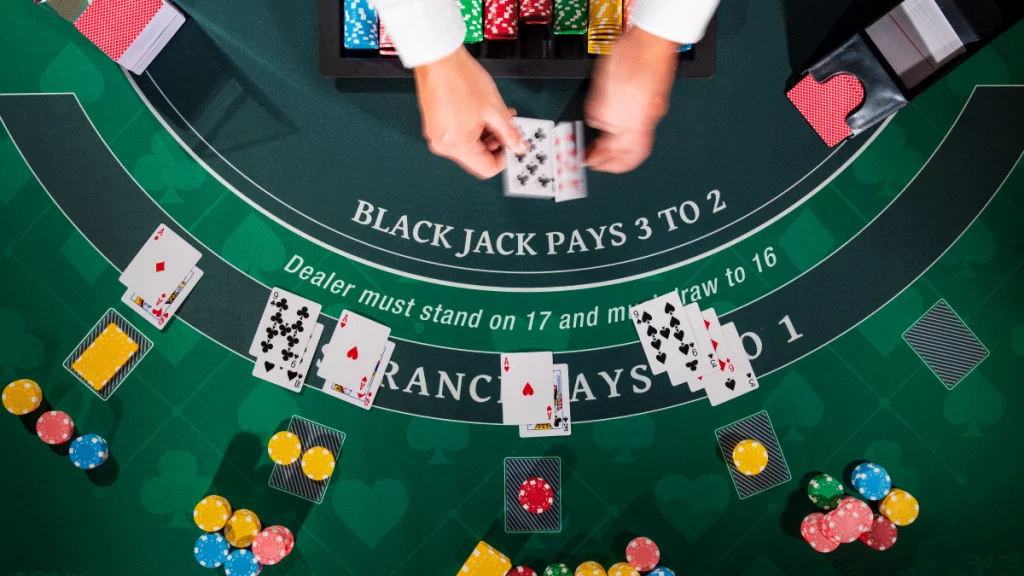
How to Count Cards in Blackjack
Basics of Card Counting
Card counting is a strategy used to gain an advantage by keeping track of the high and low cards remaining in the deck. While it doesn’t guarantee winning, it can significantly increase the odds in the player’s favor. The basic premise is to keep a running count of the cards dealt, assigning values to different cards. Learning the black jack card numbers will give you an advantage.
Running Count and True Count
- Running Count: The player assigns a value to each card dealt. Typically, cards 2-6 are counted as +1, 7-9 as 0, and 10-Ace as -1. The running count is the sum of these values.
- True Count: To account for multiple decks, the running count is divided by the number of decks remaining. The true count gives a more accurate picture of the deck’s composition.
Implementing Card Counting
To effectively count cards, players must practice maintaining the running count while observing the game. This skill requires concentration and quick mental calculations. While card counting is legal, casinos discourage it and may take measures to identify and ban skilled counters. Knowing how to play blackjack in a casino can enhance your experience.
How to Play Blackjack at a Casino
Preparing to Play
Playing Blackjack at a casino involves more than just knowing the rules. Familiarity with the blackjack table casino setup and etiquette is essential. Players should choose a table with limits that match their bankroll and observe a few rounds to understand the dealer’s pace and the game’s flow.
Placing Bets
To play blackjack in a casino, players must place their bets in the designated betting circles before the dealer begins dealing cards. Bets are typically made using casino chips, which can be purchased at the cashier or directly from the dealer.
Interacting with the Dealer
Understanding the blackjack dealer rules and etiquette is crucial. Players should use hand signals to indicate their decisions to the dealer:
- Hit: Tap the table with a finger.
- Stand: Wave a hand horizontally.
- Double Down/Split: Place an additional bet next to the original bet.
Winning and Payouts
Winning hands are paid out immediately after the dealer completes their hand. If a player wins with a Blackjack, they receive a 3:2 payout. Regular wins pay 1:1, and insurance bets (if taken) pay 2:1.
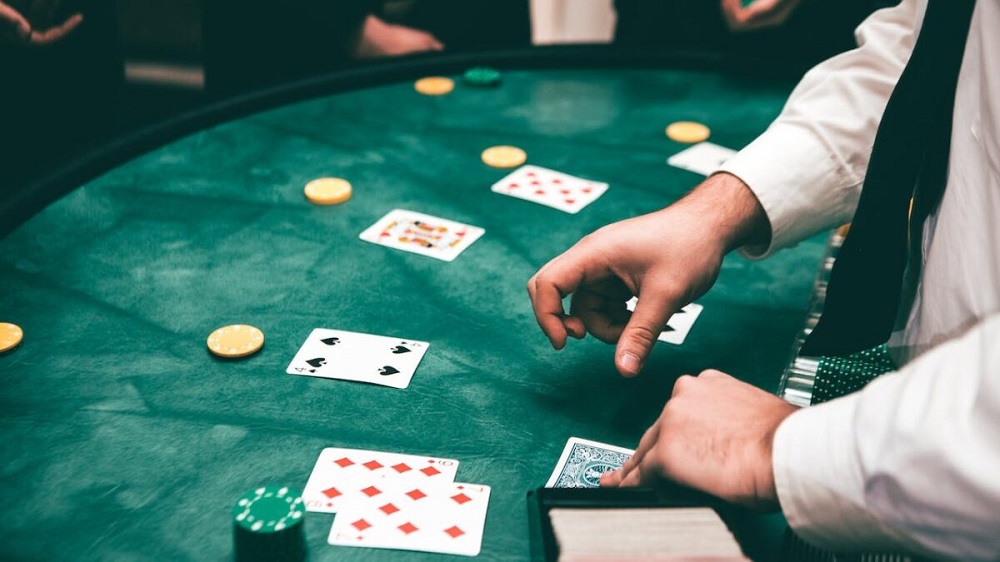
What Does Insurance Mean in Blackjack?
Understanding Insurance
Insurance is a side bet offered when the dealer’s upcard is an Ace. Players can bet up to half of their original bet that the dealer’s hole card will be a 10, resulting in a Blackjack.
Evaluating Insurance Bets
While insurance pays 2:1, it is generally considered a bad bet for players. The odds of the dealer having a Blackjack are less than 30%, making the bet unfavorable in the long run. Experienced players usually avoid taking insurance.
When to Consider Insurance
Insurance may be considered if a player is counting cards and knows that there are a higher proportion of 10-value cards remaining in the deck. In such scenarios, the bet may offer a slight advantage. The blackjack guide is a valuable resource for beginners.
How Many Decks are Used in Blackjack?
Single and Double Deck Games
Originally, Blackjack was played with a single deck of 52 cards. Single-deck games are rare today but can still be found in some casinos. Double-deck games are more common and offer a lower house edge compared to multi-deck games.
Multi-Deck Games
Most casinos use four, six, or eight decks in Blackjack games. The increased number of decks makes card counting more challenging but allows for more players at the table and faster gameplay. Don’t forget to review the black jack dealer rules for a fair game.
Impact on Strategy
The number of decks used in Blackjack affects basic strategy and card counting. In general, fewer decks favor the player, while more decks increase the house edge. Players should adjust their strategies accordingly based on the number of decks in play.
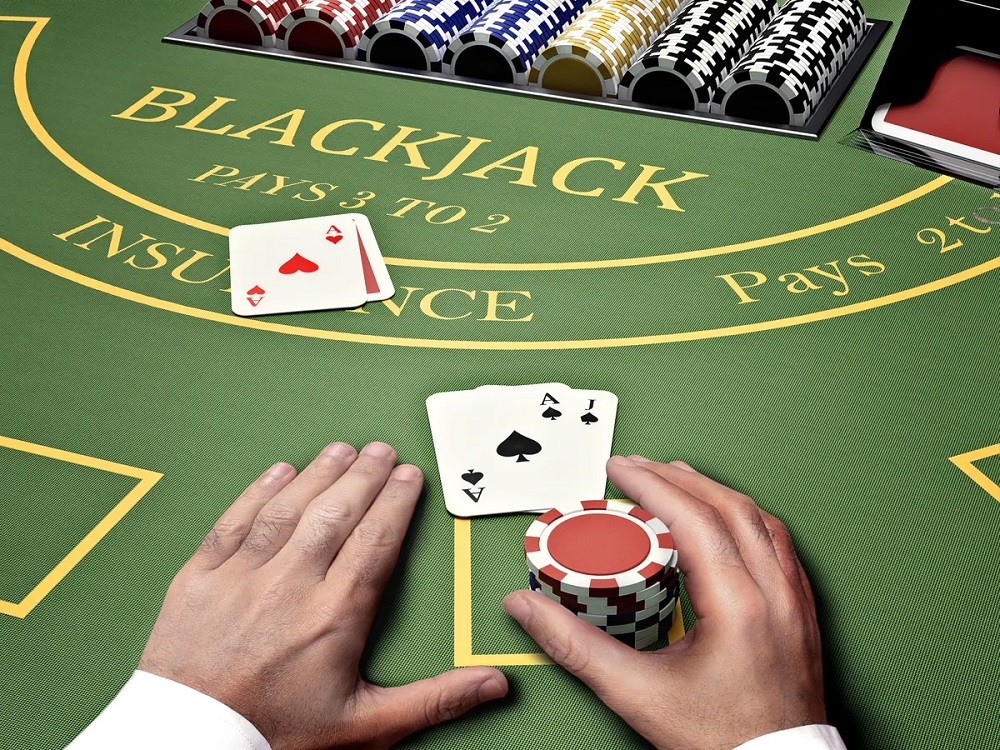
What Does Doubling Mean in Blackjack?
Doubling Down
Doubling down is a strategic move where a player doubles their initial bet in exchange for receiving exactly one more card. This option is available on the first two cards dealt and can be advantageous in certain situations. The correct black jack card numbers can influence your strategy.
When to Double Down
Common scenarios for doubling down include:
- When the player’s total is 11, and the dealer’s upcard is a lower value.
- When the player’s total is 10, and the dealer’s upcard is 9 or lower.
- When the player’s total is 9, and the dealer’s upcard is 6 or lower.
Benefits and Risks
Doubling down can maximize winnings when the player is in a favorable position. However, it also carries the risk of losing twice the original bet if the additional card does not improve the hand. Following the blackjack table rules ensures a proper game environment.
Doubling Down Rules
Each casino may have specific rules regarding doubling down. Some casinos allow doubling down on any two cards, while others may restrict it to certain hand values. Understanding the blackjack table rules and specific doubling down rules at each casino is crucial for making informed decisions.
Conclusion
Blackjack is a captivating game that combines luck and skill. Understanding the blackjack rules card values, dealer rules blackjack, and the various strategies involved can significantly enhance your playing experience. Whether you’re learning how to play 21 card game at a casino or exploring how to play blackjack online, this blackjack guide offers valuable insights to help you succeed.
By mastering the fundamental rules and features, practicing card counting, and familiarizing yourself with casino etiquette, you’ll be well-prepared to take on the blackjack table casino. Remember to play responsibly, and may the odds be ever in your favor as you enjoy the exciting world of Blackjack!

